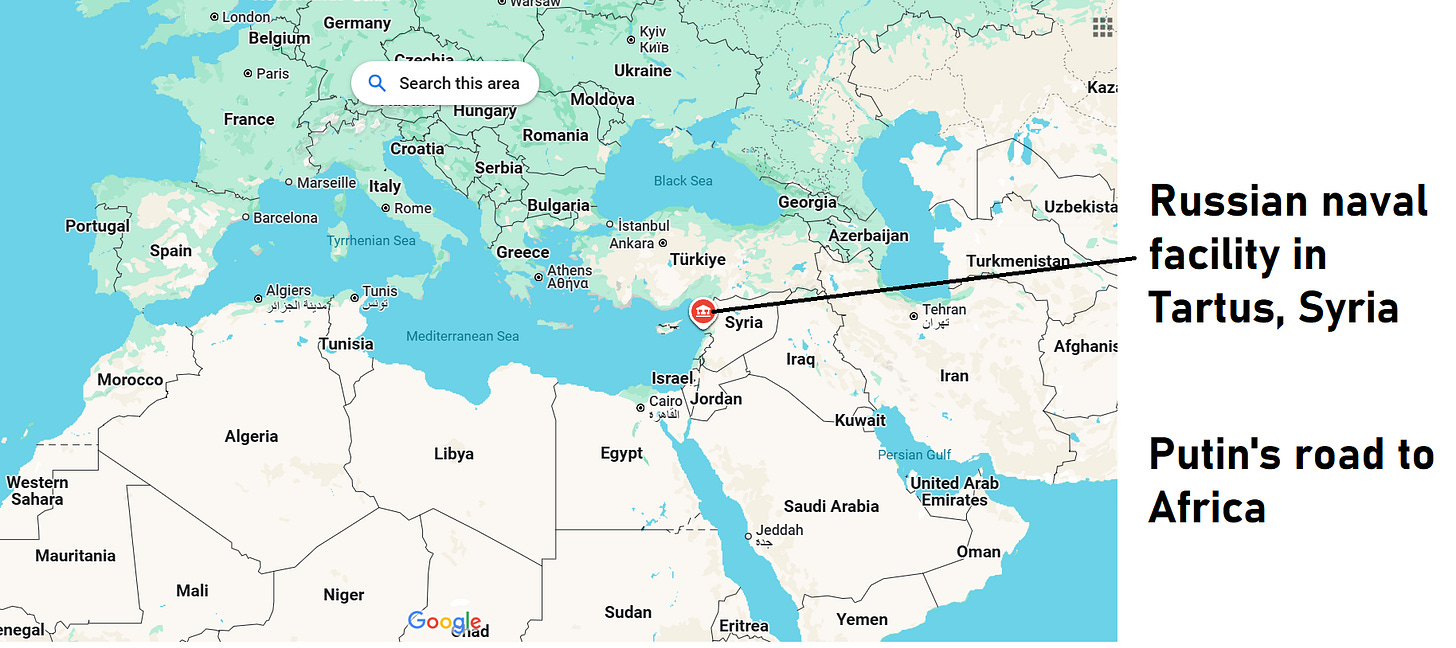It might be surprising, but much of the chaos unfolding around the world can be traced back to Syria—it is where it all began. The global surge of right-wing fervor finds its fuel in the Syrian crisis.
Remove nativism from right-wing structure, and its foundation becomes unstable. Donald Trump began his political journey vilifying Mexicans, escalating in 2024 to claims about “Haitians eating pets.” Shockingly, 77 million people voted for this. In some circles, hatred of migrants carries its own currency of value.
No other country has displaced as many people as Syria has in the past 12 years. Approximately 6.8 million Syrians are internally displaced. Turkey has absorbed 3.3 million refugees, while millions have fled to other Middle Eastern nations. Europe now hosts 1 million Syrian refugees.
With Assad's assistance, Russia successfully established its presence in Syria, destabilized the Middle East, and sent waves of migrants into Europe. While the military worked tirelessly to push migrants toward Europe, the Kremlin used rubles to support right-wing politicians across the continent.
Each of these politicians became proud nationalists, fueled by intense anti-migrant sentiments. How convenient. It was in Syria where Russia met its moral match: Iran. One is a proud Christian power; the other, a proud Muslim one. Both have taken pride in turning Syria into the world's largest exporter of Captagon, also known as the "poor man's cocaine."
By 2020, Captagon exports were valued at $17.5 billion—22 times the total legal exports of Syria that year. This figure surged to an estimated $30 billion by 2021.
Captagon has gained immense popularity in the Gulf region and is increasingly present in markets across Europe, North Africa, and Southeast Asia. For Bashar al-Assad’s government and Iran-backed Hezbollah, the drug trade has become a primary source of income.
The Tartus naval facility in Syria is a crucial warm-water port for Russia. Without this base, Russian operations in Africa would face significant challenges. It serves as a vital link connecting the Russian mainland with its operations in the Middle East and Africa. Examining Russia's actions in Africa reveals a familiar pattern:
Cause death.
Trigger displacement.
Create destabilization.
Control the state through military presence or mercenaries.
Drive immigrants toward Europe.
An estimated 150,000 Africans migrate to Europe every year. How long will European nations be able to manage this influx? Likely not for long. Putin’s favorite right-wing politicians will make sure that migrants remain a vital tool in their politics. Without ending Putin’s presence in the Middle East and Africa, the global migration crisis will persist. Without toppling Assad’s regime, Russia’s operations in the Middle East and Africa will not end.
That day may now be closer than ever. For years, Turkish President Erdogan maintained an uneasy and untenable relationship with Russian President Vladimir Putin. Their engagement in Syria resembled a Mexican standoff, even as they continued to conduct trade as though they were the closest of allies.
Erdogan and Putin have stood diametrically opposed on Syria. The millions of Syrians who sought refuge in Turkey pose a significant political challenge for Erdogan. From the beginning of the Syrian conflict, Erdogan opposed Assad, supporting the rebels with weapons, training, and other resources.
In essence, three external forces have shaped the Syrian conflict: a rebel faction backed by Turkey; another faction supported by the United States and Israel; and the Assad-Russia-Iran alliance.
Over the years, the rebel factions learned to avoid infighting, instead concentrating their efforts on Assad’s forces. Assad, in turn, heavily relied on Hezbollah’s infantry and the Russian military. However, as the war in Ukraine stretched Russia’s resources thin, Moscow began withdrawing critical assets from Syria. Air-defense units, fighter jets, and troop presence were significantly reduced. With Russia’s waning influence, Israel’s relentless airstrikes further weakened Hezbollah. Recognizing the opportunity, the rebels advanced against Assad at the right time.
The sky-high losses Putin has accumulated in Ukraine over the last two months have forced him to bring in North Korean troops to support his war. He is rapidly depleting his reserves and lacks the capacity to spare even one or two brigades for Syria. The Syrian rebels tested Assad’s capabilities and found them lacking.
It is no surprise that Assad’s soldiers are saying Putin has left them out to dry—and it seems he has. The situation is extremely challenging for Assad. I was pleasantly surprised to see the U.S. Air Force targeting Iranian-backed troops in the region. Somewhere higher up in the Pentagon and Israel, a decision appears to have been made: enough is enough, and the time has come to end the drugs, terror, and displacement crisis in the Middle East.
Assad’s fall would signify Putin’s defeat. It would mark the beginning of the end for Putin’s operations in the Middle East and Africa.








Shankar, thanks. Your articles and posts on Substack are excellent. It will be interesting to see where you take your journalism. I’m finding you to be essentially daily reading.
Who is Shankar Narayan? I am impressed with his commentary. Shankar appears to be well informed and a straight shooter, which, in a media world divided between right wing lies and the truth, means that Shankar’s post seem to be liberal. But I googled his name and couldn't find out much about him -- except that his name appears to be an alternate appellation for the Hindu gods Shiva and Vishnu.